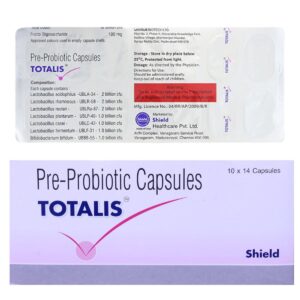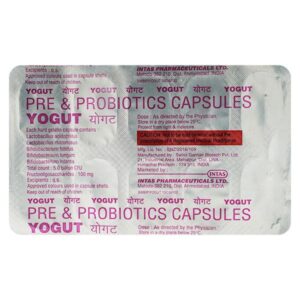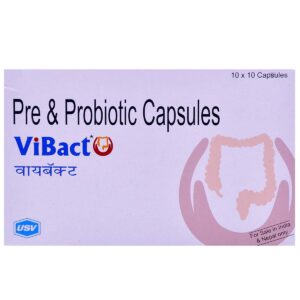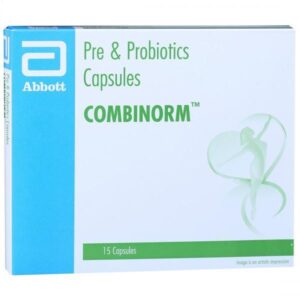PRE AND PROBIOTIC
PRE AND PROBIOTIC: Title: Pre and Probiotic
Introduction:
Pre and Probiotics are supplements that work synergistically to promote a healthy functioning of the gastrointestinal system. They contain a combination of beneficial bacteria and specialized nutrients to support the growth and activity of these beneficial microorganisms. This article describes the use, mechanism of action, recommended dose, and potential side effects of Pre and Probiotic supplements.
Use:
Pre and Probiotics are commonly used to maintain a healthy balance of bacteria in the gut, restore the gut microbiota after antibiotic use, alleviate digestive disorders, boost the immune system, improve nutrient absorption, support overall digestive health, and regulate bowel movements.
Mechanism of Action:
Prebiotics: Prebiotics are non-digestible fibers that serve as a food source for the beneficial bacteria (probiotics) present in the gut. They are not broken down during digestion, and instead, reach the colon intact, where they nourish the good bacteria and promote their growth and activity. Examples of prebiotics include inulin, fructooligosaccharides (FOS), and galactooligosaccharides (GOS).
Probiotics: Probiotics are live microorganisms, mainly bacteria and some yeast strains, that offer health benefits when consumed in adequate amounts. They work by various mechanisms, such as crowding out harmful bacteria in the gut, strengthening the intestinal barrier, producing antimicrobial substances, and modulating the immune system. Commonly used probiotic strains include Lactobacillus acidophilus, Bifidobacterium bifidum, and Saccharomyces boulardii.
Dose:
The recommended dose of Pre and Probiotics can vary depending on the specific product and the individual’s needs. It is advisable to follow the instructions given by the manufacturer or consult a healthcare professional for personalized dosage recommendations. Generally, typical doses range from 1 to 10 billion colony-forming units (CFUs) for probiotics and 2 to 10 grams for prebiotics, taken daily.
Side Effects:
The majority of individuals tolerate Pre and Probiotics well; however, some potential side effects may occur. These can include mild gastrointestinal symptoms such as bloating, gas, diarrhea, or constipation, especially during the initial stages of supplementation. These effects usually subside as the body adjusts to the new microbial balance. In rare cases, individuals with compromised immune systems or underlying health conditions may experience more severe side effects, such as infections. It is advisable to discontinue use and consult a healthcare provider if any concerning symptoms arise.
Conclusion:
Pre and Probiotics are widely used to support a healthy gut microbiota, enhance digestion, boost immune function, and optimize overall well-being. Prebiotics act as food for probiotics, promoting their growth and activity. Probiotics, on the other hand, exert numerous benefits by balancing gut bacteria, supporting intestinal health, and modulating the immune system. It is essential to follow recommended dosages and consult a healthcare professional if any concerns or side effects arise.













